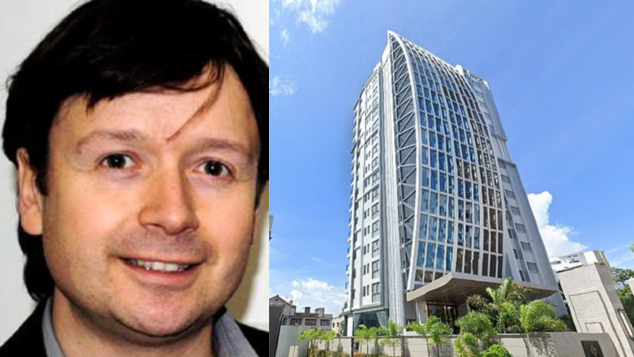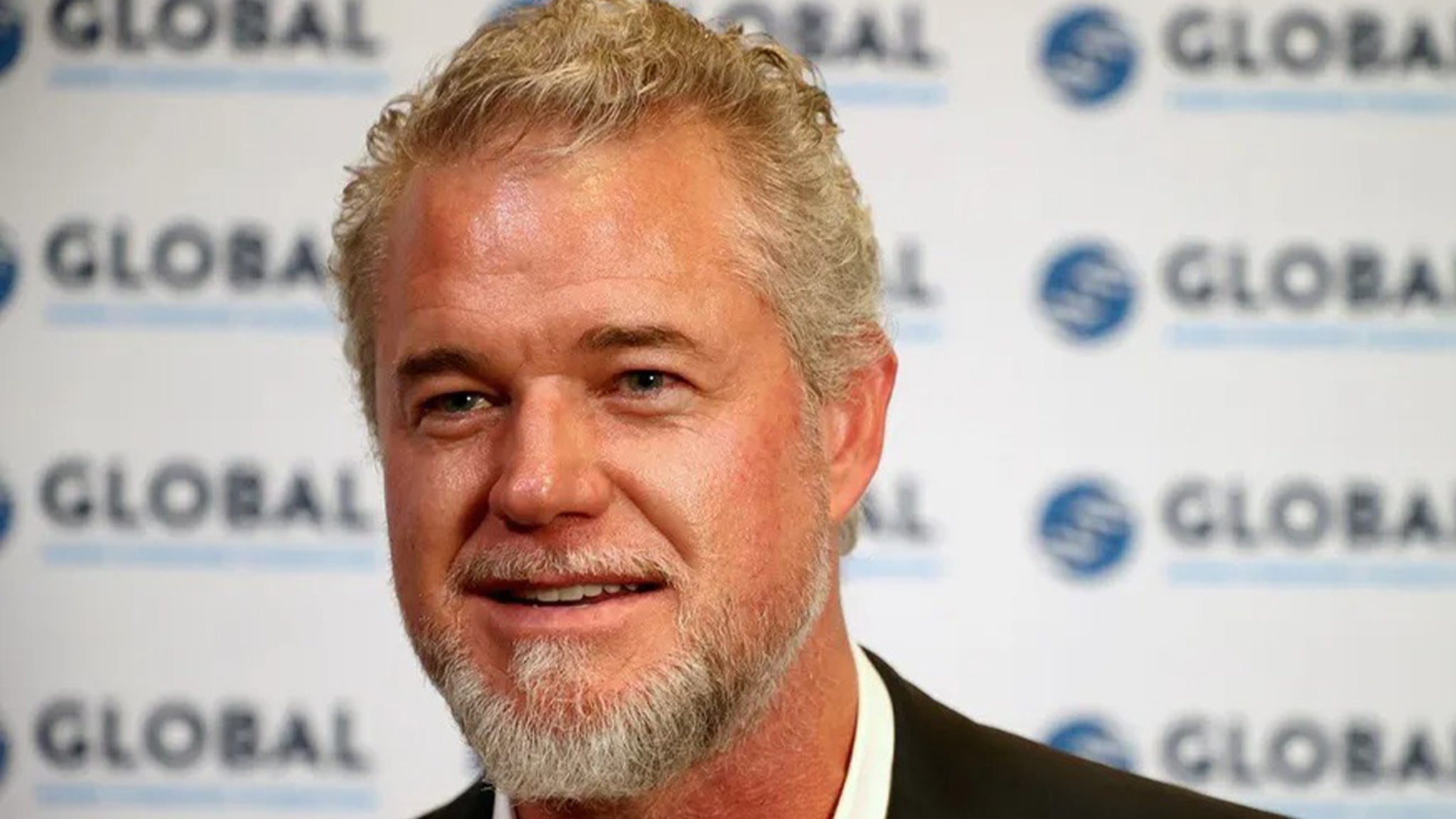The arrest of former President Jair Bolsonaro in Brazil’s capital is making headlines worldwide, and thrusting an Oscar-contending film into the spotlight.
Federal police took Bolsonaro into custody on Saturday after Brazil’s Supreme Court determined there was evidence he was planning to escape house arrest and possibly flee to a foreign embassy days before he was set to begin a 27-year prison sentence. He was convicted in September of trying to stage a military coup to hold onto power after he lost reelection in 2022.
Apocalypse in the Tropics, directed by Petra Costa, shows how the rise of Christian nationalism in Brazil helped propel Bolsonaro, a far-right populist, to the presidency in 2019 after evangelicals leading the movement fastened onto him as their preferred candidate.
Reacting to the news of Bolsonaro’s arrest, Costa wrote on social media, “Brazil just succeeded where America failed. Bringing a former president who assaulted democracy to justice.”

Netflix
On Tuesday, Apocalypse in the Tropics earned four nominations for the 41st IDA Documentary Awards, including Best Feature Documentary and Best Director for Costa. For her film, Costa interviewed the man who defeated Bolsonaro in 2022 — Luiz Inácio Lula da Silva. She also spoke with Bolsonaro himself as well as a Christian nationalist pastor, Silas Malafaia, who backed Bolsonaro’s candidacy and, some would say, pulled the puppet strings while the president was in office.
Costa says Malafaia acted “like a Rasputin figure to Bolsonaro. He helped elect Bolsonaro… He [gathered] the evangelical vote behind Bolsonaro, which in Brazil has become 27 percent of the population. And the great majority of them voted for Bolsonaro, giving him the public working-class support that he didn’t have before.”
Apocalypse in the Tropics was released worldwide on Netflix on July 14, and produced an immediate impact in Brazil, one not foreseen by Pastor Malafaia when he spoke openly with the director about his contempt for Brazil’s Supreme Court, and his insistence that Bolsonaro should remain in office despite being defeated. As a result of the documentary, Costa tells Deadline, Malafaia now finds himself ensnared in the very investigation that got Bolsonaro his 27-year prison sentence.

Pastor Silas Malafaia alongside Brazlian President Jair Bolsonaro on September 15, 2022 in Rio de Janeiro, Brazil.
Wagner Meier/Getty Images
“What is important to say is that the federal police or the Supreme Court were not at all investigating him or mentioning him,” Costa noted. “I think it was very much a result of the film and how the film called attention to his role, that this actually happened.”
A particular scene in the documentary could serve as evidence against Malafaia — a moment at a rally Bolsonaro attended while trying to cling to power. A few feet away from Bolsonaro stood Malafaia, who appeared to mouth words that simultaneously came out of Bolsonaro’s mouth – suggesting, at the very least, that they had coordinated their remarks in advance, or that the president was Malafaia’s ventriloquist dummy.
Malafaia was “basically lip-syncing Bolsonaro, but also directly confronting the Supreme Court. So that was the most inflamed speech of both of them, where they’re both confronting and disrespecting the Supreme Court and saying they will no longer obey orders from the court.”
At Bolsonaro’s trial, alarming details emerged of his alleged plot to retain power.
“That coup had as a plan — and that plan was written and printed in [Bolsonaro’s] presidential palace to kill Lula, Lula’s vice president and Supreme Court Justice Alexandre de Moraes. And it was only not fulfilled, that plan, because one top general did not agree with it. And the reason was that there was no U.S. backing. The Biden administration had communicated that they would not back a coup, otherwise it would have happened. So, if Trump was president, for example, that coup might have happened and have been successful, which is very scary.”

President Trump and Brazilian President Jair Bolsonaro attend a joint news conference in the Rose Garden at the White House March 19, 2019 in Washington, DC.
Chris Kleponis-Pool/Getty Images
President Trump has expressed consistent support for Bolsonaro, going back to Trump’s first term in office. Earlier this year, the American president slapped steep tariffs on Brazil as punishment for Bolsonaro’s prosecution.
“He tried to bully Brazil into stopping the trial of Bolsonaro, calling it a witch hunt,” Costa noted, “saying that Bolsonaro had done nothing different than he had done himself… He also sanctioned the [Brazilian] Supreme Court justices and terminated their [U.S.] visas.”
Bolsonaro and Trump share similarities in the way Christian nationalist ideology has become integral to their governance. Bolsonaro appeared to take his marching orders from Malafaia; as for Trump, he invited Pete Hegseth, a reported Christian nationalist, into his cabinet in the vital role of secretary of defense.

Director Petra Costa
Andreas Rentz/Getty Images
As Costa explores in her film, Christian nationalists are motivated by an interpretation of the New Testament that deemphasizes the teaching of the Gospels and instead focuses on Revelations, the controversial book of the Bible that prophesizes a final battle between good and evil to prepare for the Second Coming of Christ.
Costa detected the influence of Revelations on comments Trump made at the memorial service for slain right-wing political organizer Charlie Kirk, a Christian nationalist. After Kirk’s widow told attendees she forgave her husband’s assassin, Trump disagreed, saying he hated his opponents.
“[Trump] is invoking that apocalyptic speech, that Christian vision of a Christ that is not a redeemer, not here to preach love and forgiveness, but here to preach war and destruction of your enemies,” Costa observed.
In the case of Bolsonaro, he had Malafaia whispering in his ear. The Brazilian pastor, in turn, was influenced by American theologian C. Peter Wagner who argued that the Christian Church should engage in spiritual warfare to take “dominion” over all areas of culture. “[Wagner] calls the left ‘Satan on Earth’ and a Satan that should be extinguished and annihilated, which is the opposite precisely of the principle of the Democratic thought and also of the Christian thought of loving your neighbor.”
Brazil’s Constitution, taking its lead from the U.S. Constitution, enshrines separation of church and state. But in both countries, the Christian nationalist movement is trying to end that.
“What I was interested in understanding in this film,” Costa told Deadline, “is what this marriage between religious fundamentalism and politics is doing to our democracy and how it is threatening it.”







